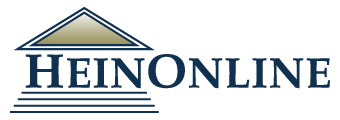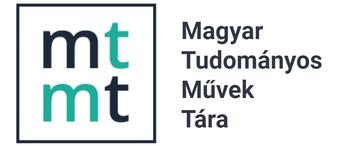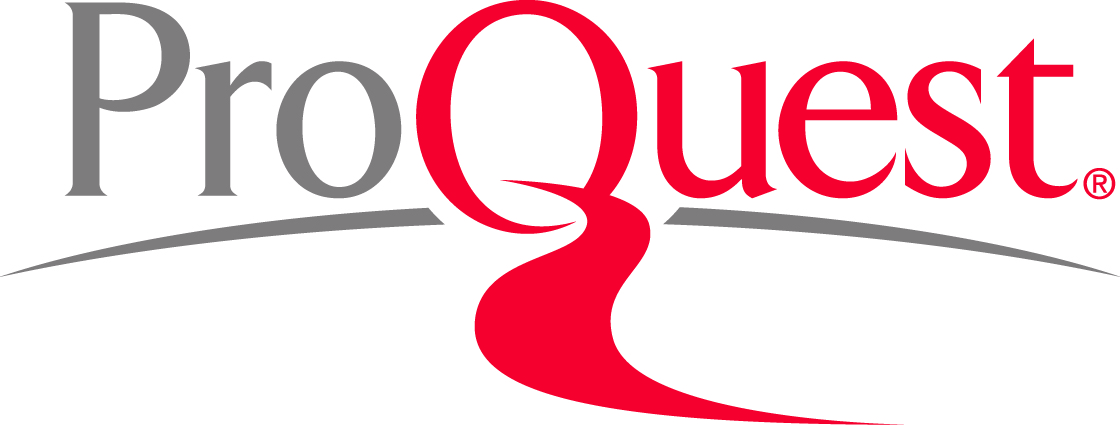Legal provisions for the facilitation of the transition to a circular economy in the Polish legal system
Abstract
The transition to a circular economy (CE) is a priority objective for European Union (EU) Member States. Specifically, this goal is stated in the 8th Environmental Action Programme (which outlines a programme until 2030), the European Green Deal, European Commission communications, and the Waste Framework Directive 2008/98/EC as amended by Directive 2018/851. As a member of the EU, Poland is obliged to align its waste management practices with the CE; this work is reflected in legislative changes related to waste, packaging, and the municipal maintenance of cleanliness and order. This article presents the legal status of the transition to a CE in Poland, including the established legal instruments. The Polish legal system has developed measures to protect the environment, life, and human health by preventing and reducing waste and improving the efficiency of raw material use. Waste management is consistent with the waste hierarchy, with a focus on maximising recovery (material and organic recycling, energy recovery), an extended producer responsibility system, and strict requirements for recovery and recycling rates, with a particular focus on plastic packaging. In Poland, the CE Roadmap—which includes a legislative toolkit on sustainable industrial production, sustainable consumption, bioeconomy, new business models, and CE implementation and monitoring – has been developed for the transformation toward a CE. Poland’s priorities in this regard include: (1) innovation, strengthening cooperation between industry and the scientific sector, resulting in the implementation of innovative solutions in the economy; (2) creating a European market for secondary raw materials, where their movement would be easier; (3) ensuring the high quality of secondary raw materials that results from sustainable production and consumption; and (4) developing the service sector.
References
Andersen MS (2007) An introductory note on the environmental economics of the circular economy, Sustainability Science 2, pp. 133–140, https://doi.org/10.1007/s11625-006-0013-6
Bándi Gy (2022) Sustainable Development, the Interests of Future Generations and Moral and Legal Implications, in: Szilágyi J E (ed.) Constitutional Protection of the Environment and Future Generations, CEA Publishing, Miskolc-Budapest, pp. 18–73.
Brzeziński J, Kędzia G, Ocicka B, Pluta-Zaremba A, Raźniewska M, Turek J et al. (2022) Diagnoza i perspektywy rozwoju rynku bioopakowań w gospodarce o obiegu zamkniętym, Journal of Marketing and Market Studies 29(9), https://doi.org/10.33226/1231-7853.2022.9.3
Domenech T & Bahn-Walkowiak B (2019) Transition Towards a Resource Efficient Circular Economy in Europe: Policy Lessons from the EU and the Member States, Ecological Economics 155, pp. 7–19, https://doi.org/10.1016/j.ecolecon.2017.11.001
Elia V, Gnoni MG & Tornese F (2017) Measuring circular economy strategies through index methods: A critical analysis, Journal of Cleaner Production 142, pp. 2741–2751, https://doi.org/10.1016/j.jclepro.2016.10.196
Hopej-Malinowska K (2023) Environmental law principles as guidelines for protecting the outer space, Journal of Agricultural and Environmental Law 35(18), pp. 25–28, https://doi.org/10.21029/JAEL.2023.35.18
Geissdoerfer M, Savaget P, Bocken NMP & Hultink EJ (2017) The Circular Economy – A new sustainability paradigm? Journal of Cleaner Production 143, pp. 757–768, https://doi.org/10.1016/j.jclepro.2016.12.048
Głowacki J, Kopyciński P, Malinowski M & Mamica Ł (2019) Identyfikacja i delimitacja obszarów gospodarki w obiegu zamkniętym w ramach zrównoważonej konsumpcji, in: Kulczycka J (ed.) Gospodarka o obiegu zamkniętym w polityce i badaniach naukowych, IGSMiE PAN, Kraków, pp. 134–168.
Gralak A (2021) Wdrażanie modelu gospodarczego opartego na obiegu zamkniętym w biogospodarce, Problemy Rolnictwa Światowego 21(3), pp. 24–40, https://doi.org/10.22630/PRS.2021.21.3.11
Karpus K (2021) Extended producer responsibility as a pillar of circular economy: Current challenges for Polish waste management policy and law, Athenaeum. Polskie Studia Politologiczne 71, pp. 111–126.
Karpus K (2023) Gospodarka o obiegu zamkniętym i przeobrażenia prawa o odpadach Unii Europejskiej, Prawne Problemy Górnictwa i Ochrony Środowiska 1, pp. 1–22.
Korzeniowski P (2014) Model prawny systemu gospodarki odpadami. Studium administracyjnoprawne, University Lodz Press, Łódź.
Korzeniowski P (2014) Instrumenty prawne reglamentacji w gospodarce odpadami, Przegląd Prawa Ochrony Środowiska 3, pp. 9–32, https://doi.org/10.12775/PPOS.2014.027
Kulczycka J (2018) Wskaźniki gospodarki o obiegu zamkniętym dla Unii Europejskiej i Polski, Gospodarka W Praktyce i Teorii 53(4), pp. 81–93, https://doi.org/10.18778/1429-3730.53.05
Moraga G, Huysveld S, Mathieux F, Blengini GA, Alaerts L, Van Acker K et al. (2019) Circular economy indicators: What do they measure?, Resources, Conservation & Recycling 146, pp. 452–461, https://doi.org/10.1016/j.resconrec.2019.03.045
Murray KA, Skene K & Haynes K (2015) The circular economy: An interdisciplinary exploration of the concept and application in a global context, Journal of Business Ethics 140, pp. 369–380, https://doi.org/10.1007/s10551-015-2693-2
Olajos I & Mercz M (2022) The use of the precautionary principle and the non-refoulement principle in public law – Or how far the boundaries of constitutional principles extend, Journal of Agricultural and Environmental Law 32(16), pp. 79–82, https://doi.org/10.21029/JAEL.2022.32.79
Paleari S (2022) The Impact of the European Green Deal on EU Environmental Policy, The Journal of Environment & Development 31(2), https://doi.org/10.1177/107049652210822
Pearce D & Turner RK (1990) Economics of Natural Resources and the Environment, Harvester Wheatsheaf, London.
Pichlak M (2018) Gospodarka o obiegu zamkniętym – model koncepcyjny, Ekonomista 3, pp. 335–346.
Pink M & Wojnarowska M (eds.) (2020) Biogospodarka. Wybrane aspekty, Difin, Warszawa.
Serwis Rzeczypospolitej Polskiej (2023) Resolution 136/2019 of Council of Ministers of 10 September 2019 on the adoption of the Roadmap for the transformation towards a circular economy, https://www.gov.pl/web/rozwoj-technologia/rada-ministrow-przyjela-projekt-mapy-drogowej-goz [23.11.2023]
Robaina M, Villar J & Pereira ET (2020) The determinants for a circular economy in Europe, Environmental Science and Pollution Research 27, pp. 12566–12578, https://doi.org/ 10.1007/s11356-020-07847-9
Schunz S (2022) The ‘European Green Deal’ – a paradigm shift? Transformations in the European Union’s sustainability meta-discourse, Political Research Exchange 4, 2085121, https://doi.org/10.1080/2474736X.2022.2085121
Taranic I, Behrens A & Topi C (2016) Understanding the Circular Economy in Europe, from Resource Efficiency to Sharing Platforms. CEPS Special Reports No. 143, https://ssrn.com/abstract=2859414 [25.11.2023]
Terryn E (2019) A right to repair? Towards sustainable remedies in consumer law, European Review of Private Law 27(4), pp. 851–874.
Wilts H & von Gries N (2015) Europe’s waste incineration capacities in a circular economy, Waste and Resource Management 168, pp. 166–176, https://doi.org/10.1680/warm.14.00009
Turiel J (2021) Consumer electronic right to repair laws: Focusing on an environmental foundation, William & Mary Environmental Law and Policy Review 45(2), pp. 579–599.
Wolf S, Teitge J, Mielke J, Schütze F & Jaeger C (2021) The European Green Deal – More Than Climate Neutrality, Intereconomics 56, pp. 99–107, https://doi.org/10.1007/s10272-021-0963-z
Zębek E (2018) Gospodarka odpadami w ujęciu prawnym i środowiskowym, KPP Monografie, UWM Press, Olsztyn 2018.
Zębek M & Raczkowski M (2014) Prawne i techniczne aspekty gospodarowania odpadami komunalnymi, Przegląd Prawa Ochrony Środowiska 3, https://doi.org/10.12775/PPOS.2014.027
Zębek E, Szwejkowska M & Raczkowski M (2015) Legal and organizational solutions of municipal waste management in Poland in compliance with Waste Directive 2008/98/EC, Journal of Environmental Protection and Ecology 16(2), pp. 652–658.
Zębek E & Zięty J (2022) Effect of Landfill Arson to a “Lax” System in a Circular Economy under the Current EU Energy Policy: Perspective Review in Waste Management Law, Energies 15, 8690, https://doi.org/10.3390/en15228690
Zoll F (2019) From a product-based economy to services? Legal aspects of an economy in transition, in: Keirsbilck B & Terryn E (eds.) Consumer protection in a circular economy, Intersentia, Cambridge, pp. 149–155.












